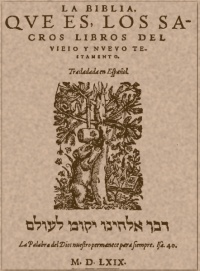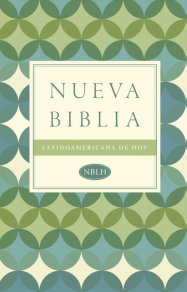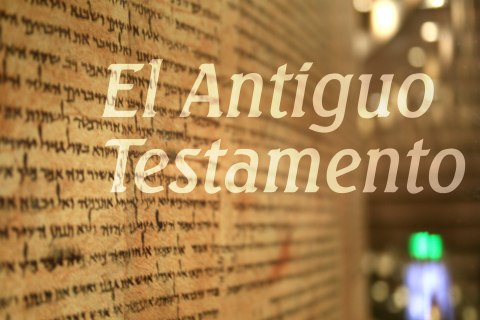Spanish Bible Versions – Free Online
For our Bible study, Where did the Bible come from?, we talked about many different Bible versions in Spanish (the good, the bad, and the ugly!). I wanted to give people access to some of the versions out there, so I’ve created this list of some of the versions that are currently available online.
Note: some versions I intentionally left off the list for various reasons, others are not currently available free online to my knowledge. Also, there are a number of versions available at BibleGateway.com, but I in my links below I try to start with an interface in Spanish as much as possible.
Here’s the list, with the name of the version, the date (of the linked version, not necessarily the first edition), and a handy URL to use to find it…
Bibles of historic interest
 |
La Biblia del Oso (The Bear Bible) was the first full Bible to be printed in Spanish. La Biblia Mexicana de Vence (The Vence Mexican Bible) was the first Mexican translation. It was in 25 volumes (!) – a parallel Bible in Spanish and Latin, but I’ve included just 4 volumes as samples.
La Biblia del Oso (1569) — https://bit.ly/2JXgYQF
La Biblia Mexicana de Vence (1831) 1 — http://tinyurl.com/vence1831-1
La Biblia Mexicana de Vence (1831) 4 — http://tinyurl.com/vence1831-4
La Biblia Mexicana de Vence (1831) 5 — http://tinyurl.com/vence1831-5
La Biblia Mexicana de Vence (1831) 7 — http://tinyurl.com/vence1831-7
Bibles in common use today
As far as I know these are all still in print today. The most common Bible in Spanish is probably the Reina-Valera 1960 (a descendant of La Biblia del Oso), likely followed by a Roman Catholic version, La Biblia de Jerusalén (based on a French translation). The four in bold are ones I focused more on in the study, because they give a good spectrum of different types of translation.
 |
Reina-Valera Antigua (1865) — https://bit.ly/rv-1865
Reina-Valera (1909) — http://tinyurl.com/rv1909
Reina-Valera (1960) — https://bit.ly/rv-1960
Reina-Valera (1995) — http://tinyurl.com/rv1995
Dios Habla Hoy (1996) — https://bit.ly/dhh-biblia
La Biblia de las Americas (1997) — http://tinyurl.com/lbla1997
Nueva Versión Internacional (1999) — https://bit.ly/nvi-1999
Nueva Biblia de las Américas (2005) — http://tinyurl.com/nblh2005
Audio Bibles
Reina-Valera (1960) — https://bit.ly/rv1960-audio
Nueva Versión Internacional — https://bit.ly/nvi-audio
The New Testament in La Biblia las Américas or Nueva Versión Internacional — http://tinyurl.com/lbla-nvi
To read this information in Spanish, visit Versiones de la Biblia en Español – Gratis en Internet








